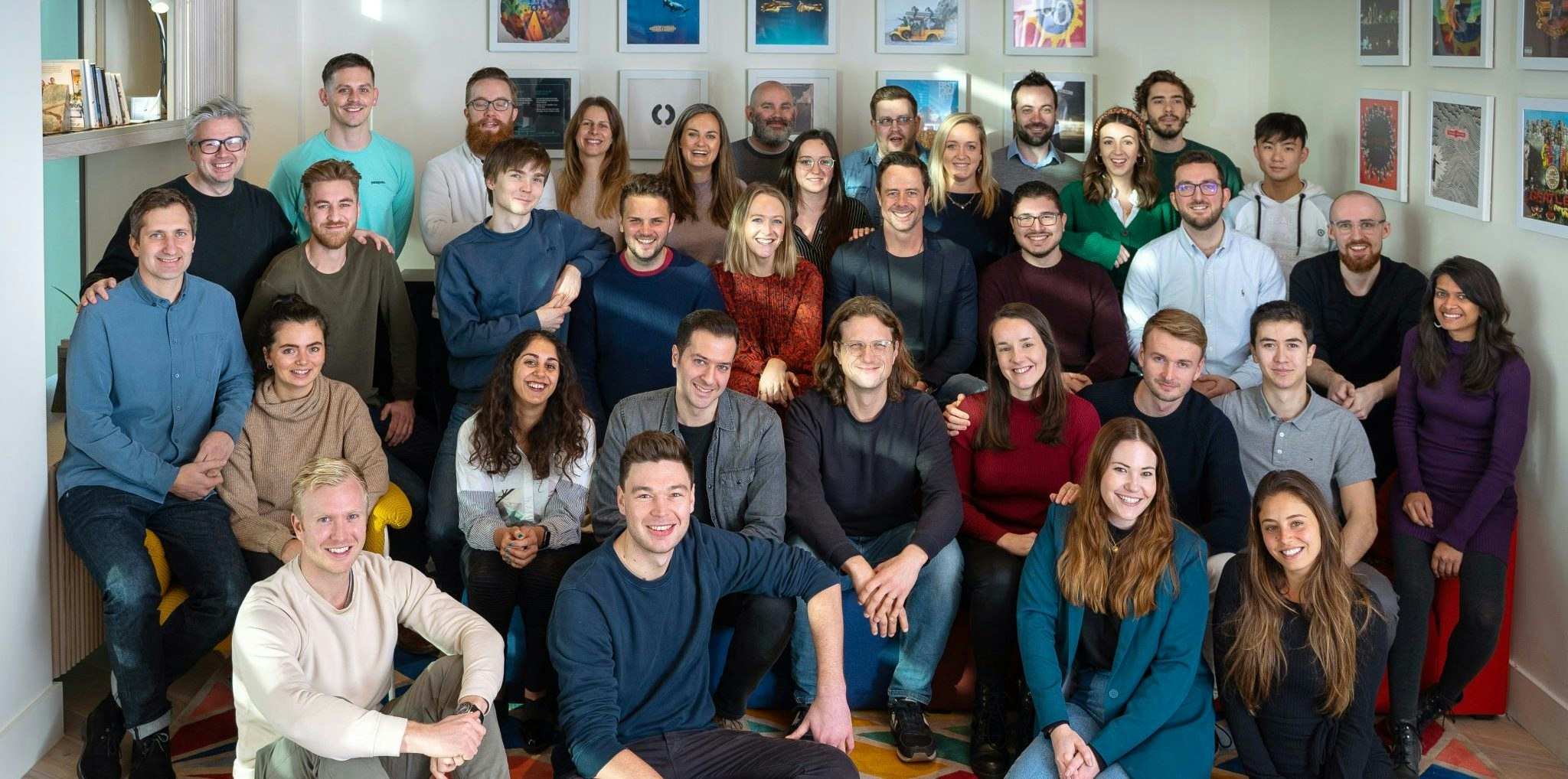In September 2022, Romanian vet tech startup Digitail detected an outbreak of a vaccine-resistant strain of canine parvovirus in Michigan. Spotted by mapping diagnoses across a series of clinics using a standardised data system, it was, according to cofounder Sebastian Gabor, a striking example of the power of data in the pet space.
The quantity of data produced in the pet tech ecosystem is mushrooming — from at-home testing and wearable trackers to insurance. Sifted sat down with some of the startups harnessing the pet "data-sphere".
Data at scale
Austria’s Tractive — which makes GPS and activity trackers — now has a fountain of data on health indicators that can reveal problems at an early stage. For example, Michael Hurnaus, Tractive’s CEO and cofounder, says pain, which pets tend to "hide" from their owners but can often interrupt their sleep, can be picked up by a wearable.
You can look up a neutered female two-year-old Rottweiler, and see whether this data is outside the range or has something changed
Hurnaus believes that, at scale, activity data provides a benchmark that will be more useful to pet owners and vets, since data in isolation to individual pets is not useful.
“Vets have no idea how to interpret it. If I say my dogs’ active minutes are only 80 this week, they don’t know what that means,” he says. But by working with vet software systems to integrate the history of the pet and compare it to the peer group, “you can look up a neutered female two-year-old Rottweiler, and see whether this data is outside the range or has something changed,” for example.
With 20 data scientists on its team, Tractive uses open APIs to give vets access to pet data using wearable serial numbers. It plans an insurance product this year — harnessing activity and sleep data to inform pricing and improve costs through preventive and early interventions.
Informing insurance
In the future, Gabor hopes vets could use big data tools to fine-tune treatments based on reviewing data from thousands of other pets with a shared history. At the moment, vets seeking advice on treatment might use more inefficient tools like the Veterinary Information Network (VIN), a forum, to manually ask questions of others. Most vet hospitals use on-premise IT and their data is unstructured, he says.
The more data we get, the price can change rather than just having one price
Lassie, a Swedish insurtech, is also using a data-driven approach to finetune and optimise its pricing. According to founder Hedda Båverud Olsson, it offers price recommendations for pet owners, given the highly variable costs across Swedish vet clinics.
Lassie’s consumer model — with regular customer touch points such as health and wellbeing tips and rewards — gives the company far more data than a conventional insurer who might only interact with a customer during a renewal or a claim.
“We are in touch with our customers weekly through our app,” says Båverud Olsson, saying that allows Lassie to develop a data-driven pricing model based on factors like age and breed, and rewarding owners for good health-related actions.
“The more data we get, the price can change rather than just having one price. You affect the price through your actions,” she says.
Data partnerships
Just like in human health, one question is not whether data can lead to better outcomes but how to find the right incentives for all players in the ecosystem to collaborate and share data.
A lot of companies want to own the data but there is no one data sink
“Everyone wants to have their own app and for data to go through that. It’s still unclear who is going to own the customer journey,” says Olsson. “There is a lot of collaboration but we haven’t found the model yet, in terms of the issue of not wanting to lose the interaction with the customer.”
Hurnaus at Tractive agrees. “A lot of companies want to own the data but there is no one data sink,” he says. “Everyone wants to build the data sink but no-one wants to put their data in there.”
To create large enough databases for decisions such as medical interventions data standardisation is critical. Vet corporate groups are trying to standardise data, but these tend to happen at the level of veterinary practice information systems (PIMS) — the management software vets use. Different PIMS have a competitive mindset which makes it harder to collaborate, says Digitail’s Gabor.
Standardisation is also necessary on a pan-European level to improve responsible ownership and crack down on illegal pet trade.
The CARO Project is working to ensure every dog and cat in Europe is identified and registered — and for databases in member states to be shareable or easily searchable. Even within individual countries, like Spain, there are several databases which don't speak to each other.
“There is no real traceability when it comes to the animals' whereabouts. This has huge implications for responsible ownership, population control and trade. For example, pet trafficking is eased by the lack of an EU rule to store the microchip number, together with the ownership and health info in databases that communicate. It’s not easy for a consumer to find where an animal is coming from,” says Georgia Diamantopoulou, an EU companion animal policy coordinator at Four Paws, an animal welfare group which founded the CARO Project.
According to Diamantopoulou, tackling the problem of stray, unwanted and illegally traded animals begins with mapping all owned pets to ensure they are identified and registered with a responsible keeper or owner.
“There are a lot of databases but there is no minimum mandatory level of information that should be in these databases, nor a harmonised EU-wide system for them to communicate.”
This article first appeared in our monthly Unleashed pet tech newsletter, a collaboration with Purina Accelerator Lab. All content is editorially independent. Sign up to our newsletter here to keep up to date with the latest goings on in the European pet tech industry.


